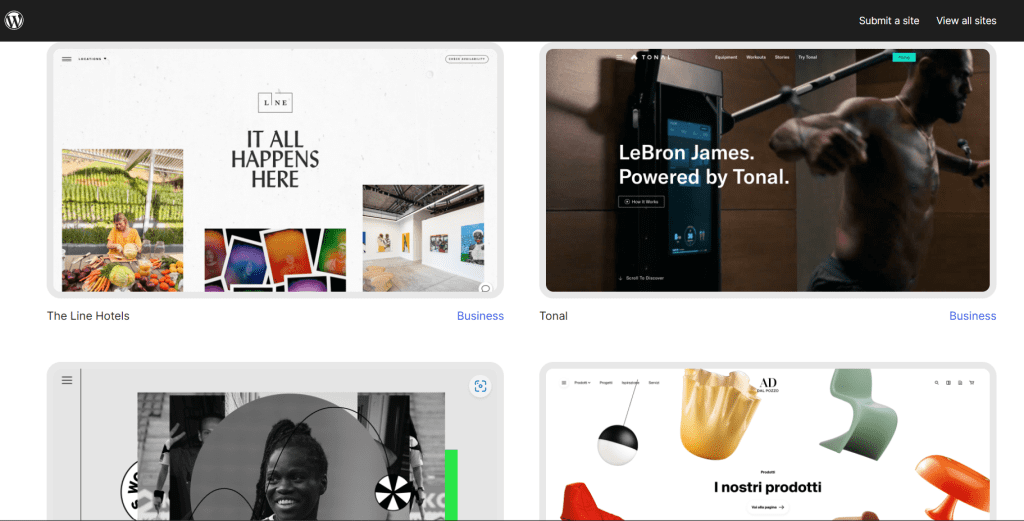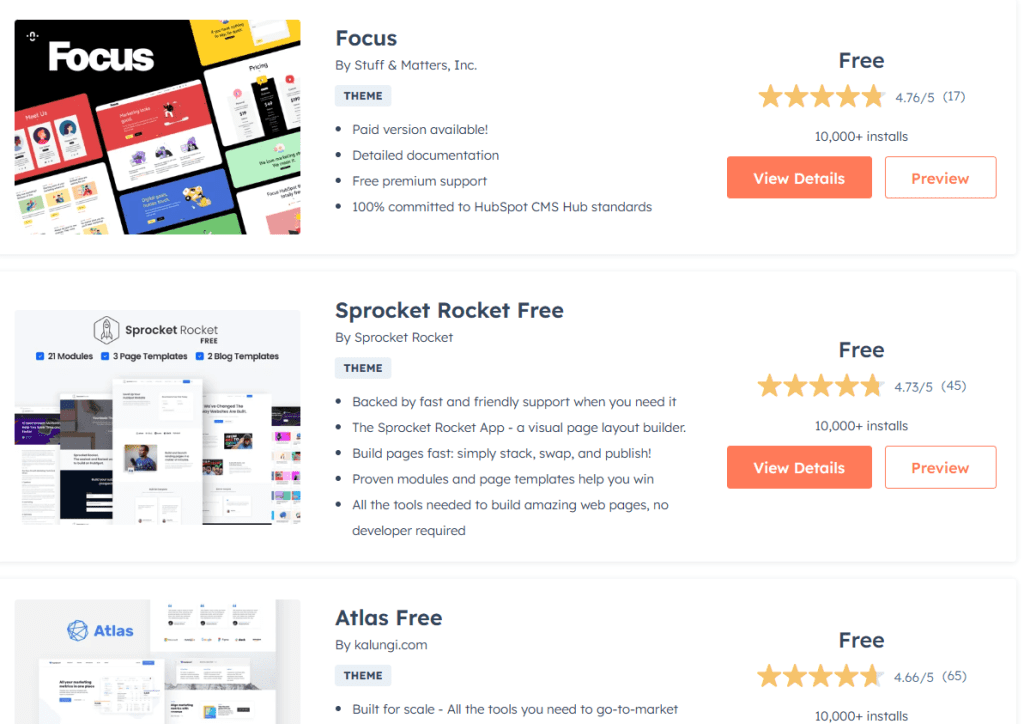HubSpot vs WordPress: A Comparison Overview of Popular CMSs.

HubSpot vs WordPress? What best? Indeed, for more than ten years, WordPress has been the preferred CMS platform. Today, it is more than the exception for most content management systems to use it, and about half of all websites use it. It is worth noting, however, that a newcomer has entered the field.
Since its introduction in 2020, HubSpot CMS has consistently gained popularity. In this article, we will compare WordPress and Hubspot CMS so that you can decide what option would suit you best. To commence, let us proceed.
WordPress, as a content management system, shares a similarity with HubSpot. The platforms also allow users to edit each site's aesthetic, layouts, and functional components. However, WordPress and HubSpot may be ideal for different classes of users. Consequently, we will consider the types of demography that best suit these channels.
It is worth mentioning that our focus is on wordpress.org rather than the other side, which is wordpress.com. Elegant Themes thinks that the.org product is much stronger than the other option. Should you be undecided on which platform to take, please refer to our detailed article outlining their differences.
Content Management System: WordPress

One of the best content management systems in the world includes WordPress. More people are using WordPress, which has a power range of 44% to 65%. Additionally, WordPress is highly customizable. In this scenario, developers need to create unique themes, plugins, and templates that will allow them to separate themselves from others.
HubSpot has come up with a WordPress plugin that integrates with WordPress. Additionally, WordPress tends to be user-friendly. There are many tutorials aimed at beginners in the web development industry that can help novices begin working with WordPress sites.
Content Management System: HubSpot

The HubSpot CMS is designed with marketers and developers in mind. HubSpot enables marketers and developers to have an immediately operational marketing hub that is wholly integrated. Utilize built-in reporting to obtain customer data, establish marketing automation, and access HubSpot CRM directly without needing customized integrations.
For comprehensive visibility into customer activities, HubSpot CMS provides the necessary tools. A single action provides access to reporting and analytics via the unified HubSpot ecosystem. For more, consult our comprehensive HubSpot overview.
Comparing WordPress and HubSpot CMS in Terms of Usability
More small business owners and individuals are penetrating this market than ever before. This explains why small business expansion since 2011 has consequently more than doubled. Moreover, there seems to be a side business to everything these days. Due to this, content management systems have become a popular way of building websites.
More and more people are trying to minimize expenditures by building their sites. Therefore, it is imperative to use an affordable, easy-to-learn, and easily understandable platform. Contemporary users require competencies like loading pictures, writing blogs and handling the admin page effectively.
WordPress CMS Usability

The WordPress content management system is an intricate platform. The degree of usability is highly variable and contingent upon factors such as the chosen theme, the intended functionalities, and the user's technical proficiency. Due to WordPress's extensive existence, many tutorials and how-to documentation can be found on YouTube and numerous other websites.
Therefore, novices will have little difficulty acquiring knowledge if they are solely required to develop an informative website to publish their content online. Using a Divi theme, a WordPress novice can also construct a straightforward website without requiring any coding expertise.
Conversely, individuals desiring to develop more sophisticated WordPress websites featuring customized integrations and functionalities will require substantial expertise in CSS, PHP, HTML, and Javascript to optimize the platform.
While it is true that there are thousands of plugins available to assist in the creation of the desired website, doing so requires sophisticated troubleshooting skills and knowledge to ensure that the plugins function harmoniously with one another. Additionally, this may be highly overwhelming for WordPress novices.
A User-Friendly HubSpot CMS

Marketers, developers, and IT teams are all considered while developing HubSpot’s content management system. Marketers enjoy great flexibility in that, with a drag-and-drop editor, they can make whatever type of website they desire. Moreover, it offers a highly functional platform for small business owners and anyone wishing to develop websites quickly.
Creating a more complex site will be as technically challenging as it would be on WordPress. Nevertheless, there are numerous ways to build websites using the HubSpot platform. On the other hand, it does not offer any extensions to be purchased at a price. That’s because HubSpot is an integrated system.
Nevertheless, learning to operate on it takes a lot of effort and hard work. Fortunately, HubSpot has an academy that will help you through all stages of creating your first website. Hence, be ready to spend 5 hours at the academy.
On completion, you will be certified to build themes and templates for the Hubspot CMS platform. For new content management system users, HubSpot has developed a new page creator that is more user-friendly for beginners.
Hubspot CMS versus WordPress: Customization
First impressions are critical. In addition to the utmost importance of excellent content, a professional appearance is also crucial. Your website's credibility and aesthetic appeal increase visitors' likelihood of staying on it. For this reason, the capability of customizing your website is of the utmost importance.
Options for Customizing WordPress
The WordPress content management system stands out for its high level of customizability. Even on the most fundamental WordPress themes, users can modify the width of their site, select the colors implemented, and select from an extensive library of typefaces for their website.
In addition, an incalculable number of options available for extensions and themes provide the desired functionality and aesthetic. Plugins are classified into various categories, including form, security, and SEO plugins. WordPress supports a variety of modules and themes, some of which are available for purchase. With the help of Gutenberg blocks, pre-installed WordPress themes offer customization options. Users can modify text, media, layouts, and custom code by selecting from nearly thirty elements.
Using premium themes like Divi provides an inexhaustible array of customization options. WordPress is transformed into a no-code design juggernaut with the addition of premium themes, which grant users access to an extensive library of content elements (including accordions, number counters, and video galleries) and the ability to modify every aspect of a site.
Options for Customizing HubSpot
In addition to other customizable features, HubSpot CMS provides a drag-and-drop editor for marketers and non-programmers. Customizable, pre-built website themes are available through the CMS. The number of modules that can be edited and added differs based on the selected motif. Furthermore, apart from modifying modules, one can also adjust author settings, theme configurations, and header and footer options.
The management of customization options for developers is accomplished through the command-line interface (CLI) version of HubSpot CMS. The capability to develop modules for implementation on web pages offers boundless potential. Modules are amenable to any form of customization that developers desire.
Each template generated via the HubSpot CLI platform is constructed in the code editor from the ground up and may comprise an unlimited number of modules, each offering distinct customization possibilities. Thus, its degree of customization is absolute; everything else is contingent on the developer's technical prowess.
CMS: WordPress versus HubSpot: Templates and Themes
Themes constitute an essential component of all content management systems (CMS). By altering a theme, a website can acquire an entirely new aesthetic and gain access to additional functionalities. Consequently, it is essential to have a wide variety of themes available, particularly for users who may lack the capability to develop their own.
Templates and Themes for WordPress

WordPress stands out with the most incredible variety of free and premium themes of any CMS. Given the vast number of theme developers in the WordPress community—hundreds—it is fair to assume you will discover one you adore. The leading premium themes in the WordPress ecosystem, such as Divi, can completely transform the appearance and feel of a website with their dozens of modules and countless customization options.
Users may also select a free motif, such as Twenty Seventeen, and modify it to their specifications using PHP, Javascript, and CSS. Developers may also generate bespoke page templates to expand the functionality of their theme.
HubSpot Templates and Themes

HubSpot provides user-facing default themes. They become readily accessible at no cost upon registering for a HubSpot CMS account. Users can generate a custom theme based on the default theme or obtain it for their websites. The process of downloading HubSpot-compatible themes occurs via the HubSpot marketplace. It is an excellent option for individuals who desire a website that showcases their business while requiring minimal coding expertise.
To modify a default motif, developers must utilize HubSpot CLI, the command-line interface of HubSpot. They then request the importation of a theme into their dashboard.
HubSpot CMS versus WordPress: Publishing Tools
While WordPress and HubSpot CMS can publish blog posts, they do so through distinct mechanisms.
WordPress
WordPress simplifies the process of generating blog entries for its users. There are two potential approaches to achieving this objective. Users may initially utilize the traditional editor, a standard word processor. Individuals with prior experience with Google Docs or Microsoft Word will find the classic editor highly intuitive.
One may enhance the functionality of the publishing tools by installing modules. For instance, Yoast SEO is an excellent instrument that can facilitate the influx of visitors to your website. Additionally, should you opt to utilize the Gutenberg Blocks editor, many extensions exist to augment its functionality by adding supplementary modules.
HubSpot Content Management
The HubSpot CMS is also capable of managing blogs. However, it operates somewhat differently. Using tabs, one can generate website pages, landing pages, journals, and the site tree in HubSpot. In addition to two sections, the post editor includes configurations for the footer, blog content, header, and your website's comments.
Additionally, you can designate themes for your posts, which is a helpful function if you wish to modify the appearance of your posts according to their content. Although the interface is straightforward, those accustomed to other post-editors may require some adjustment time.
CMS: WordPress versus HubSpot: Security
Website security is critical, particularly in the current climate. Without robust security protocols, your website becomes susceptible to various attacks, including denial of service (DDoS), malware, bots, and hacking. Both HubSpot and WordPress prioritize security, which is fortunate.
WordPress Security Part
Security for WordPress is a complex issue. It largely depends on the modules and host that you select for your website. Superior hosting providers offer everything required to safeguard your WordPress site. Furthermore, regarding security, SiteGround and Cloudways distinguish themselves by providing SSL certificates, fraud protection, and server-side malware options.
Users who wish to safeguard their website with a plugin can choose from various exceptional WordPress security plugins. Wordfence and Sucuri, for instance, are extensively employed extensions that offer defense against DDoS attacks, bot protection, and firewall functionality. Moreover, WordPress maintains a competitive edge by consistently introducing updates to its platform.
HubSpot Security Part
The security features of HubSpot CMS are among its finest attributes. As a software-as-a-service (SaaS) solution, HubSpot provides all the necessary components in a single bundle. An SSL certificate, network and perimeter security, protection of customer data, and application security are all provided by HubSpot on a single platform.
No additional services require addition to your account, and the installation of extensions is not required. TLS 1.2 or 1.3 is the industry standard, and end-to-end encryption is employed. This ensures that your website's files and customer information are protected and secure throughout the entire process. You will also receive a web application firewall, safeguards against DDoS attacks, and routine vulnerability scanning.
Conclusion
The advantages of a WordPress site versus a HubSpot site are contingent upon the intended purpose of the site. WordPress will have the most significant degree of customizability among all platforms, permitting the selection of tens of thousands of themes and plugins. It may take years for HubSpot to catch up to WordPress in terms of market share.
Developers have been creating content for WordPress for almost two decades. Setting up both WordPress and HubSpot can be challenging for novice users. However, novice WordPress users can access abundant educational resources on the internet. A regular Google search can provide novices with a wealth of information that can significantly assist in commencing their endeavors.




